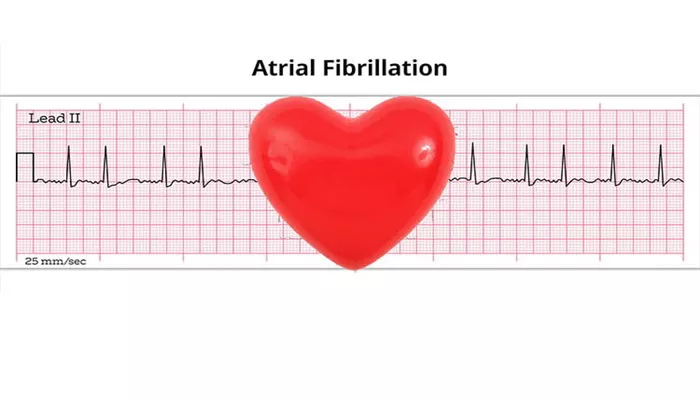September is Atrial Fibrillation Awareness Month, a time to highlight the importance of recognizing and treating this common heart condition. A normal heartbeat should resemble a steady drumbeat, but for Christopher Masi, his heart sounded like a chaotic mix of instruments.
Christopher is among the 2.5 million Americans living with atrial fibrillation (AFib), the most prevalent type of heart arrhythmia. AFib disrupts the heart’s electrical system, leading to an irregular heartbeat that can hinder proper blood flow.
Symptoms of AFib can be vague or even absent, making it difficult to diagnose.
However, it significantly increases the risk of stroke—by as much as 500%. For Christopher, this risk became a reality when he suffered two mini-strokes in 2023, which caused temporary symptoms like blurry vision. Unaware he had AFib, he sought help after a visit to his eye doctor, who advised him to see a cardiologist.
While blood thinners are often the first line of treatment for AFib, they are not always effective or tolerable for every patient. In Christopher’s case, the medication led to bleeding complications that required continuous bladder irrigation. Dr. Sung-Han Yoon, a cardiologist at Hackensack University Medical Center, noted that traditional treatment options would typically involve complex open-heart surgery. However, advancements in medical technology have introduced less invasive alternatives.
Dr. Yoon explained that one promising option for Christopher was the WATCHMAN device. This innovative device offers a proven alternative to long-term blood thinner therapy by reducing stroke risk in AFib patients.
The WATCHMAN Left Atrial Appendage Closure (LAAC) Device is implanted using a catheter that enters through the groin and is threaded up to the heart. This tiny umbrella-shaped device seals off the left atrial appendage—a common site for blood clots—preventing them from forming and reducing stroke risk. Over time, the heart tissue grows over the device, further securing it in place.
Long-term studies indicate that the WATCHMAN device provides similar stroke risk reduction compared to traditional blood thinners like warfarin, with superior outcomes regarding hemorrhagic strokes and cardiovascular deaths. Most patients in these studies were off blood thinners within a year.
Following his procedure, Christopher reported feeling well and expressed gratitude for this alternative treatment option.
“It’s a relief to know my AFib is now under control,” he said.
For those experiencing symptoms or seeking diagnosis and treatment for AFib, consulting with a cardiologist is crucial. To learn more about advanced heart services available at Hackensack Meridian Health, visit HMHhasheart.com or call 844-HMH-WELL for assistance from a heart specialist.

